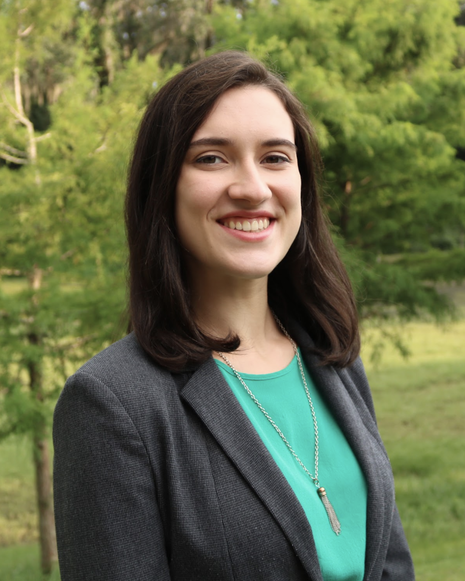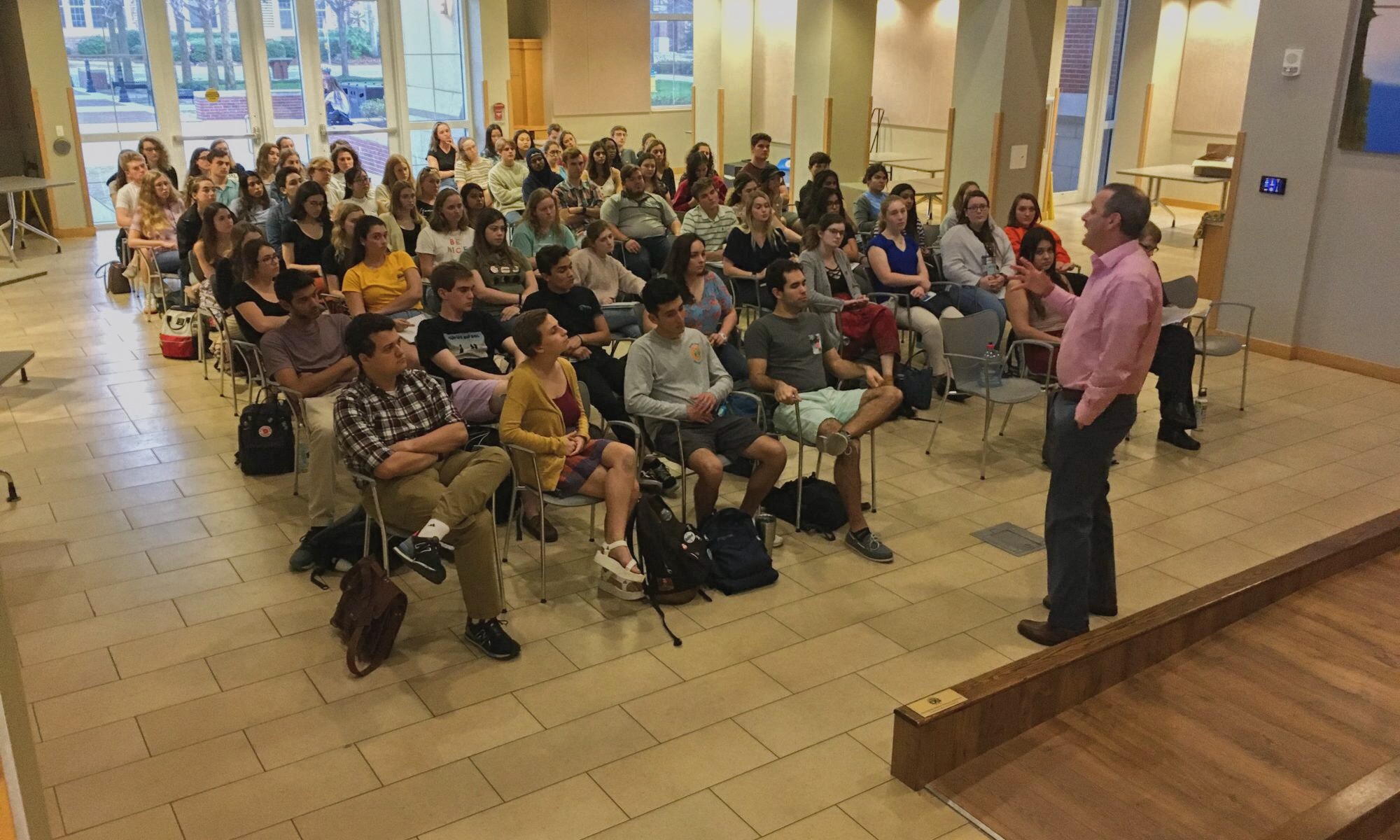
Dear Florida,
We love you, all 67 counties of you, from the pine forests of the Panhandle to the coral reefs of the Keys. These places and the ones in between make Florida the paradise where many of us grew up. We have also witnessed the profound effects of climate change underway here. We’ve seen those coral reefs bleached and dying. We’ve seen some of those pine forests rotting after Hurricane Michael and vulnerable to wildfire in a creeping drought.
When 67 UF undergraduates fanned out across the state to research community impacts of climate change, we found far more than the rising seas and shrinking beaches that make headlines: Growing seasons are shortening in counties dependent on agriculture; local officials report critical infrastructure is becoming overwhelmed; and saltwater’s intrusion into the aquifer is compromising coastal wells and crops—and even killing our iconic state tree, the sabal palm.
We saw great inconsistency in response, from regions far ahead of the curve to those where leaders ignore the science of climate change. One consistency in each county is the urgent desire to protect citizens and property, environment and economy, often without near enough resources or support.
We write to ask for bold leadership now to respond to climate change and build resilience in this state that is among the most vulnerable in the nation. Our recommendations focus this leadership at every scale to empower local communities and protect the most vulnerable Floridians. By prioritizing climate action at the state level, we can integrate resilience into our daily lives and our communities.
We ask you to imagine with us a just, sustainable and vibrant future Florida. Picture electric cars and flexible public transportation, tapping into statewide renewable energy infrastructure. Envision adaptive cities, with active, diverse and affordable communities that keep people and property safe from rising seas and rising thermostats. Consider smart growth: development that accounts for Florida’s growing population while protecting its unique natural wonders.
These visions are entirely possible if we act now to address climate change and plan for a better future. Florida, we know this is asking a lot, but we’re not asking you to do it alone. The struggles we students have been through in these last four months as a result of COVID-19—some of us have lost family members, many of us have lost jobs or internships, all have lost community and security—have only deepened our resolve and our resilience.
Consider us forerunners to a statewide climate corps helping to build resilience in every field, from the renewable energy technicians installing solar panels; to the teachers speaking about climate change to school-children or in retiree communities; to the business leaders investing in carbon reduction technology.
Climate change may be our greatest challenge yet, but we are ready to face it and eager to roll up our sleeves beside you.
Love,
UF Bob Graham Center Civic Scholars Class of 2020
Florida Climate Resilience Recommendations
Provide Bold Leadership
Prioritize climate resilience statewide and across sectors
- Permanently establish the position of Chief Resilience Officer
- Appoint a statewide champion for climate resilience
- Provide them funding, staff, resources and authority to assess how climate change is affecting all 67 counties and how we can best prepare for the future
- Develop a Florida Climate Action Plan that:
- Addresses both the causes and effects of climate change
- Sets clear goals to lower carbon emissions, adopt renewable energy and strengthen Floridians’ resiliency
- Establishes a Florida Climate Assessment so we can determine vulnerabilities, see changes, set goals and measure Florida’s progress
- Addresses statewide challenges including internal and external climate migration
- Institute a self-sufficient Florida Climate Fund to prioritize adaptation and support new resilience projects
- Convene a financing task force to develop a sustainability-linked revenue stream such as fees for groundwater extraction, plastic bags or carbon emissions
- Form a Florida Green Bank to leverage private capital for community-led clean energy and transportation investments
- Build statewide regional and local initiatives across scales and sectors, working with state agencies to:
- Integrate climate science into education from elementary through graduate school
- Develop stronger responses to public-health threats including rising temperatures; heightened storm intensity; extreme deluges and drought; rising asthma rates and vector-borne illnesses; their emotional and physical tolls; and their disparities along racial and class lines
- Promote carbon farming and support farmers across the state who seek to transition to more-sustainable crops and practices
- Implement new building and development standards that account for rising temperatures, storms and seas, and restore natural areas to absorb floodwaters and cool cities
- Advance renewable energy, energy efficiency, electric vehicles and grid modernization
Strengthen Collaboration and Communication
Reach out to our regions, communities and neighbors
- Tap best practices from established leaders including nonprofits, regional resilience coalitions such as the Southeast Florida Climate Compact, planning councils and philanthropies to strengthen climate adaptation and mitigation statewide
- Create a network to share information among all 67 counties and local communities
- Replicate and scale up successful programs
- Partner with Florida’s universities to develop and adopt cutting-edge solutions
- Scale up research projects proven particularly successful, from living shorelines to asthma management, to reach more of the state and vulnerable populations
- Experiment with innovative technology, including virtual learning and digital platforms, to expand climate education and resources
- Expand the role of university extension to share climate adaptation best practices through agents and existing county programs
Support Local Communities and People
Listen to local governments and support vulnerable populations
- Provide dedicated outreach to local communities to encourage resilience efforts and contribute information and support
- Establish vulnerability baseline data as part of the Florida Climate Assessment
- For counties without formal programs, tap a local resiliency champion in each to connect with peers, advocate and share citizen concerns and experiences
- Communicate with county representatives and citizens to cultivate understanding of the links between climate change and local issues
- Contribute financial and logistical assistance as counties without climate infrastructure ramp up policies and programs
- Expand resilience grants in scale and reach, from beyond coastal Florida to all 67 counties
- Prioritize resilience efforts addressing essential housing, water and wastewater infrastructure in vulnerable communities
- Create a Climate Service Corps that builds resilience from local communities outward
- Volunteers of all ages, from students to retirees, are eager to initiate climate conversations and other work in their communities
- Workers who have lost jobs due to COVID-19 can be linked to a wide range of climate-resilience needs and opportunities
